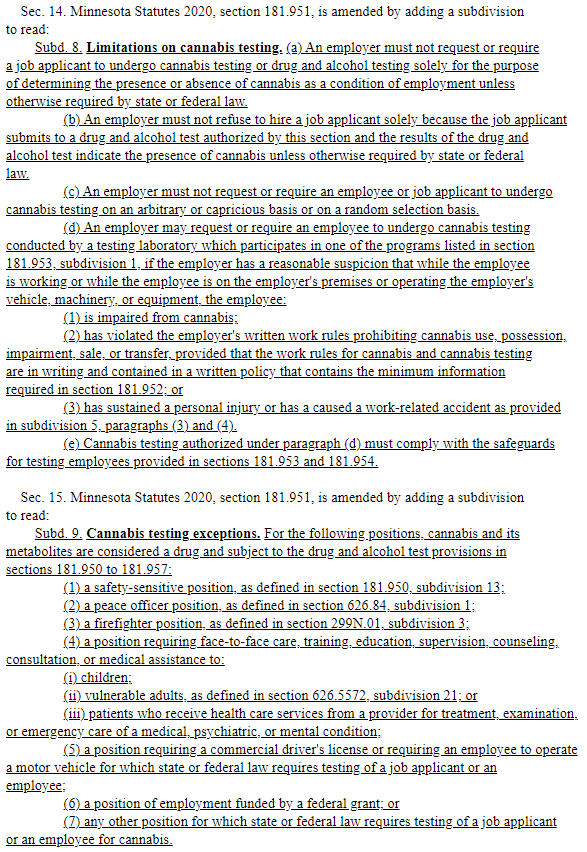Topics:
January 3, 2023
Minnesota Members: Marijuana Legalization and Your Small Business

State:
Get to know NFIB
NFIB is a member-driven organization advocating on behalf of small and independent businesses nationwide.
Related Articles

April 18, 2025
RSVP for NFIB Minnesota’s FREE Legislative Update Webinar
NFIB will host a free webinar on Tuesday, April 29th to discuss Minnesota’s…
Read More


April 15, 2025
How a Potential Small Business Tax Hike Will Impact Minnesota
NFIB Releases Report Detailing Benefits of 20% Small Business Tax Deduction…
Read More


April 14, 2025
Minnesota Legislative Sessions Resumes with Budget, Tax, and Em…
The Minnesota Legislature will return from recess on April 21st with a full…
Read More


April 14, 2025
Rhode Island Capitol Update
NFIB State Director Christopher Carlozzi testified before the House Committ…
Read More







